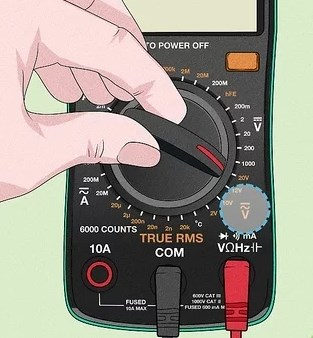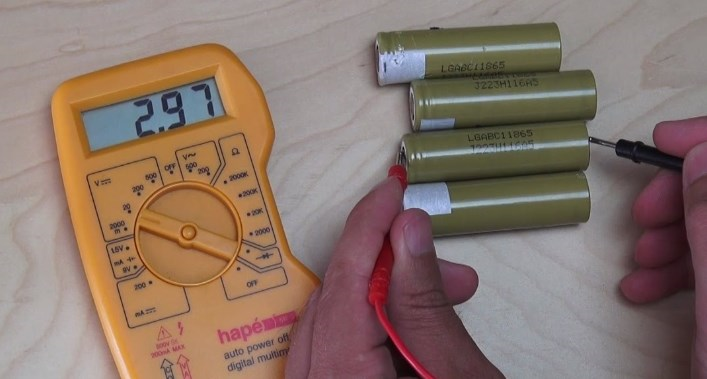OUTLINE:
Facts about 18650 Battery Voltage
 84
84The 18650 battery, named for its dimensions (18mm in diameter and 65mm in length), has become a popular choice for powering a variety of devices due to its high energy density and reliable performance. Understanding the different aspects of 18650 battery voltage is crucial for ensuring safe and effective use.
An Introduction to 18650 Battery
The 18650 battery, a type of cylindrical lithium-ion battery, has become a crucial component in many electronic devices. But what exactly is it, and how does it work?
What is an 18650 Battery
The 18650 battery, named for its dimensions (18mm in diameter and 65mm in length), is a common type of lithium-ion battery. It's often found in devices such as laptops, power tools, flashlights, and even electric vehicles.

How Does an 18650 Battery Work
Inside the battery, lithium ions shuttle between the cathode and anode, generating electricity. This process is known as the electrochemical reaction. The lithium cobalt oxide in the cathode releases electrons, while the graphite anode absorbs them, creating a flow of electricity.
Why is it so Popular
The 18650 battery has become popular due to its high energy density, longevity, and reliability. It can store more energy in a smaller space, making it ideal for devices that require a long runtime or high power outputs. Plus, it's rechargeable, making it a sustainable choice for many applications.
Safety Precautions
While the 18650 battery is generally safe, there are some important safety measures to follow. Firstly, never attempt to modify or repair a battery. Secondly, store the battery in a cool, dry place away from heat sources or direct sunlight. Finally, always use a charger specifically designed for lithium-ion batteries and avoid overcharging or overdischarging.
To conclude, the 18650 battery is a crucial component in many electronic devices. Its high energy density, longevity, and reliability have made it a go-to choice for a range of applications. With proper care and handling, this battery can last for years, providing consistent power where and when you need it most.
How to Measure 18650 Battery Voltage
Measuring the voltage of an 18650 battery is a straightforward process that can be done using basic tools. Here's a step-by-step guide to help you accurately measure the voltage of your battery:
1. Prepare your tools:
You will need a digital multimeter (DMM) with voltage measurement capabilities. Make sure the multimeter is set to the correct voltage range for measuring 18650 batteries (typically 0-10V DC).

2. Remove the battery from the device:
If the battery is installed in a device, carefully remove it and set it aside for measurement.
3. Clean the contacts:
Use a clean cloth or tissue to gently clean the battery contacts to remove any dirt or debris that may be present. This ensures a good connection when measuring the voltage.
4. Measure the voltage:
Position the red lead of the DMM on the positive terminal of the battery and the black lead on the negative terminal. Make sure to touch the leads gently to avoid damaging the battery contacts.
5. Read the voltage:
Look at the DMM display and read the measured voltage. Record the voltage value for reference.

6. Properly dispose of the battery:
After measuring the voltage, handle the battery carefully and properly dispose of it according to local regulations and safety guidelines. Remember to use caution when handling 18650 batteries as they contain a high amount of energy and can pose a risk if not handled properly.
5 Factors to Consider When Selecting an 18650 Battery Voltage Type
When selecting an 18650 battery voltage type, several factors should be considered. Here are the key factors:
1. Voltage Requirements:
The voltage requirements of your device will determine the type of 18650 battery you need. Some devices require a specific voltage range, while others can operate at different voltage levels. Make sure to check the voltage requirements of your device to ensure compatibility with the battery you are considering.
2. Capacity:
The capacity of an 18650 battery refers to the amount of energy it can store, typically measured in mAh (milliampere-hours). You should choose a battery with a sufficient capacity to power your device for the desired duration. Higher capacity batteries will provide longer runtimes, but may also have a larger size and weight.
3. Discharge Rate:
The discharge rate refers to how quickly the battery can deliver its stored energy. It is expressed as the amount of current the battery can deliver, typically in amps. Consider the discharge rate of your battery based on the power requirements of your device. A higher discharge rate may be suitable for devices that require higher power outputs.
4. Safety Considerations:
18650 batteries contain a high amount of energy and can pose potential safety hazards if not handled properly. It is important to choose a reputable brand and ensure the battery is designed according to safety standards. Additionally, follow proper handling procedures when using and storing 18650 batteries to minimize the risk of fire or damage.
5. Cost:
The cost of 18650 batteries can vary depending on the brand, capacity, and other factors. Consider your budget and seek value for money when choosing a battery. However, do not compromise on safety for cost savings as it is essential to use high-quality batteries for safe operation.
In summary, selecting the right 18650 battery voltage type requires considering multiple factors, including voltage requirements, capacity, discharge rate, safety considerations, and cost. By taking these factors into account, you can ensure compatibility, performance, and safety when using 18650 batteries in your device.
Final Verdict
Understanding the voltage characteristics of an 18650 battery aids in determining the best voltage range for a particular application. Whether an 18650 battery is powering portable electronic gadgets, electric cars, or energy storage systems, monitoring its voltage is critical for assuring peak performance, durability, and safety. Regular voltage checks and following manufacturer specifications are critical for extending the life and efficiency of 18650 batteries.

Disclaimer: The views and opinions expressed by individual authors or forum participants on this website do not represent the views and opinions of Chipsmall, nor do they represent Chipsmall's official policy.

share this blog to:

